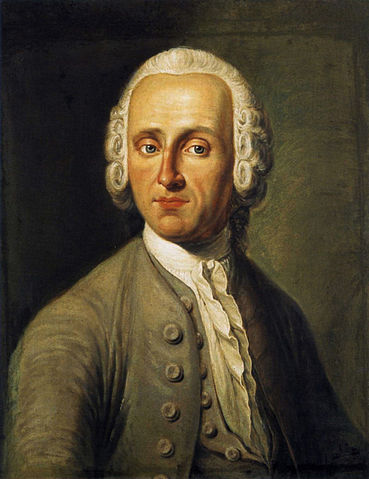Beethoven’s music is rarely overtly religious, but one exception is the Gellert Lieder (Opus 48) from late 1801 and early 1802. Beethoven apparently intended these six songs to be performed in sequence as a set, hence perhaps constituting one of the first major song cycles.
Christian Fürchtegott Gellert was a prolific author of books and letters, but he was most regarded for his popular fables, and for his 1757 collection of 54 religious poems “Geistliche Oden und Lieder” (Spiritual Odes and Songs), six of which Beethoven set to music.

In his book The Beethoven Song Companion (p. 154), Paul Reid characterizes Gellert’s book of religious poems as not something to be read straight through:
Gellert’s collection is a compendium of pious texts to be dipped into. Very frequent echoes of scriptural sources give the collection a sense of universality, but also of repetitiveness. It would be no exaggeration to regard the collection as a reworking of the Psalms of David for the eighteenth century, as these are quoted so freely.
Maynard Solomon says that the Gellert Lieder
gives the impression that there may have been a ring of religious impulses in Beethoven at this time. Perhaps the deep personal, musical, and ideological crisis that he was undergoing during these years momentarily brought his strong religious feelings to the surface. But with the subsidence of the crisis and the consolidation of his ‘new path,’ this tendency apparently waned once again, and religious music disappeared from Beethoven’s workshop for half a decade. (Beethoven, p. 247)
The six Gellert Lieder are:
- “Bitten” (Prayer)
- “Die Liebe des Nächsten” (Love of One’s Neighbor)
- “Vom Tode” (Death)
- “Die Ehre Gottes aus der Natur” (Glory of God in Nature)
- “Gottes Macht und Vorsehung” (God’s Power and Providence)
- “Busslied” (Song of Repentance)
Gellert wrote his “Spiritual Odes and Songs” to be sung, and many include multiple stanzas in roughly the same meter and rhythm. For example, “Gottes Macht und Vorshung” (which is the 5th song in Beethoven’s cycle) has 15 stanzas. Beethoven’s score of this song sets only the first stanza to music, and that’s how the songs are usually performed. But a singer could choose to repeat the same music for more of the stanzas from Gellert’s book.
See Paul Reid’s Beethoven Song Companion for translations of all Gellert’s stanzas. For a translation of just the stanzas that are commonly sung, see the [lieder.net] (https://www.lieder.net/lieder/assemble_texts.html?SongCycleId=51) site.
“Busslied” is the only song that is through-composed and explicitly uses all six stanzas of Gellert’s poem. With a change of tempo from Adagio to Allegro halfway through, this one almost resembles an aria rather than a song.
#Beethoven250 Day 150
Gellert Lieder (Opus 48), 1801–02
Bulgarian bass-baritone Apostol Milenkov sings the whole cycle during an Easter concert in Vienna.
#Beethoven250 Day 150
Gellert Lieder (Opus 48), 1801–02
I would love to post a live performance of Jessye Norman singing these songs, but a studio recording will have to suffice.
#Beethoven250 Day 150
Gellert Lieder (Opus 48, Nos. 1, 4, 6), 1801–02
Tenor Brenten Megee sings three of the Gellert Lieder for his Master’s Recital.
#Beethoven250 Day 150
Gellert Lieder (Opus 48), 1801–02
The songs work surprisingly well in this orchestral arrangement as sung by German soprano Christina Roterberg.
#Beethoven250 Day 150
Gellert Lieder (Opus 48, No. 4), 1801–02
The fourth of the Gellert Lieder is frequently performed in choral arrangements.
#Beethoven250 Day 150
Gellert Lieder (Opus 48, No. 2), 1801–02
The second of the Gellert Lieder is a meditation on the meaning of the love of one’s neighbor.